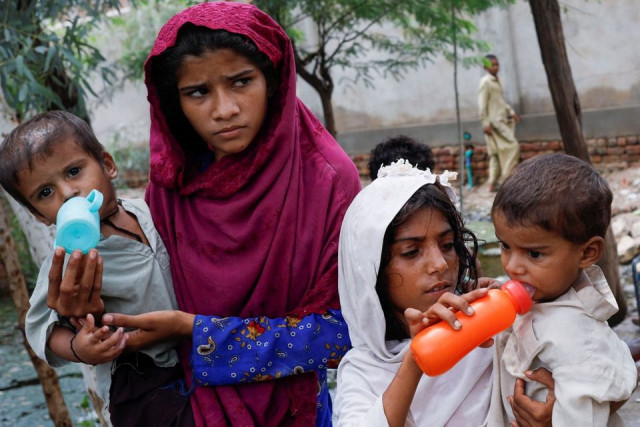EU releases €1m aid to respond to floods
New funding in addition to €16.5m already earmarked in humanitarian assistance to country

The European Union (EU) has released an additional €1 million in humanitarian aid to respond to the floods that have affected the country in the past weeks, according to an official statement issued here on Monday.
It said that the funding would help to address the most "pressing needs of vulnerable people in the provinces of Balochistan, Sindh, Punjab and Khyber-Pakhtunkhwa (K-P)".
It also added that around 0.9 million people had been affected by the recent floods across the country.
Meanwhile, Commissioner for Crisis Management, Janez Lenarčič affirmed his support to help the most in need in the wake of climatic changes, affecting Pakistan the most.
“One year after the tragic floods that caused tremendous suffering in Pakistan, the EU remains committed to helping those most in need. As a new rain season has again displaced thousands of people in parts of the country, this additional EU funding will help support vulnerable communities as they try to recover their former lives," he stated.
Read More: Climate change or bad governance: A case of unprecedented flooding in Pakistan
Furthermore, this allocation would be used to provide multi-sectoral humanitarian assistance to those who remain displaced, as well as those who have returned to their place of origin, given the level of damage to houses and key basic services such as water and sanitation or health.
It also pledged to continue with its support in the winter season as well. Moreover, "a multi-purpose cash assistance, shelter and [provision] of non-food items would also be prioritised for the affectees", it shared the future prospects of injecting funds.
The release also registered that this new funding was in addition to the €16.5 million already earmarked in humanitarian assistance to Pakistan earlier this year.
This, the union said, was in order to assist the most vulnerable population affected by conflict and climate-induced disasters.
Read More: Pakistan floods echoed in EU Parliament
Recently, Sutlej River which experienced severe flooding resulted in the devastation of adjacent villages, leading to the migration of people from the affected areas while many others face the looming threat of being drowned out by the unsparing deluge.
The flood water then reached 175,000 cusecs, breaching protective dykes, submerging numerous villages and disrupting transportation links.
The flooding had also resulted in the inundation of hundreds of acres of farmland alongside sumberged standing crops. Villages such as Shahoo Baloch, Baqarki, Mari Amb, Kot Bakhsha, Bheni Noor Jahanian, and others had remained under threat from the floods.
The situation prompted the National Disaster Management Authority (NDMA) to assess the damage caused and discuss measures to ensure the safety of vulnerable populations and assets.



















COMMENTS
Comments are moderated and generally will be posted if they are on-topic and not abusive.
For more information, please see our Comments FAQ